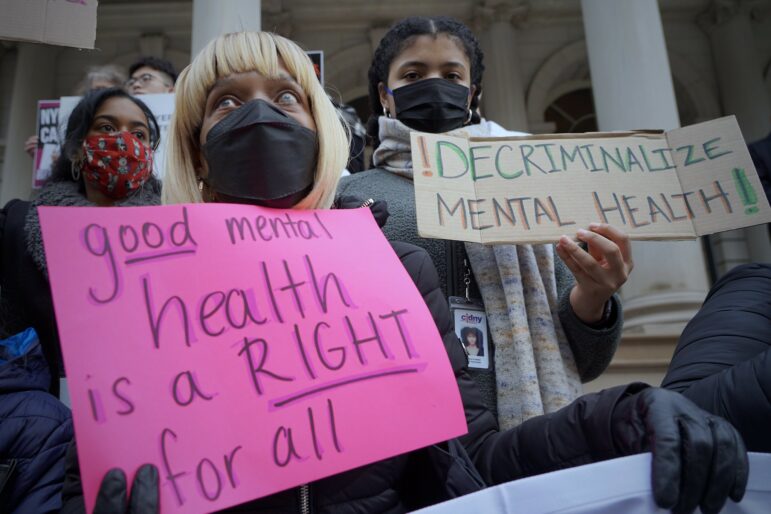“New York City and the rest of the nation continue to grapple with the failings of our mental health system that were exacerbated by the COVID-19 pandemic.”

Gerardo Romo / New York City Council Media Unit
Ten years ago, Community Access opened the doors to the city’s first Crisis Respite Center (CRC) —a supportive, home-like environment that serves as an alternative to hospitalization for individuals experiencing psychiatric crises.
Since its opening, the CRC has been a healing space for thousands of individuals who need a place to aid in their recovery. And there is data that clearly demonstrates that residential crisis support programs are beneficial for not only the individuals but the city as a whole.
A decade later, in a city of more than 8 million people, just eight of these programs exist, with the capacity to serve only 10 people (or fewer) at a time.
The capacity issue is deeply concerning. New York City and the rest of the nation continue to grapple with the failings of our mental health system that were exacerbated by the COVID-19 pandemic. Suicide rates are increasing nationwide following a two-year decline. Mental health concerns among youth continue to rise. And in New York City, there are over 75,000 people sleeping in the shelters each night, with thousands more living on the streets and struggling with mental health concerns.
That is exactly why the City Council passed Intro 1021 from the “Mental Health Roadmap,” which will expand the number of residential crisis support programs in our city.
This legislation is just one component of the roadmap, which was born out of a need for a comprehensive path forward to ensure that all New Yorkers have access to quality, person-centered mental health services.
The City Council assessed the ways that our city fails to meet the needs of New Yorkers, seeing this most prominently in the lack of prevention and supportive services throughout our city, the vacancy rates in the mental health workforce, the criminalization of mental illness and homelessness, and the need for better coordination of private, nonprofit, and public actors in the distribution of mental health services and care.
Through addressing these four areas in need of improvement, our goal is to lift New Yorkers out of this crisis and to rebuild a city that prioritizes health, well-being, and human dignity.
Residential crisis support programs are a prime example of how the community can work together to make this goal achievable. Rather than allowing individuals experiencing a mental health crisis to cycle between hospitalization and incarceration, we need to provide them with a space that is centered on their individualized recovery, led by peers with their own lived experiences with mental health concerns.
Peer support is a critical component of these spaces: One-on-one experiences with peers have been proven to reduce rehospitalization rates and inpatient time, lower overall costs of services, and improve one’s quality of life. Peers can also demonstrate to individuals in crisis that recovery is possible—and they are living examples of this.
Though CRC services vary depending on location, generally individuals aged 21 and up receive 24-hour support from peers, self-advocacy education and training, as well as group and one-on-one activities such as wellness self-management, yoga, art, poetry, and more, in the case of Community Access’ CRC. The length of stays in a residential crisis support program can vary based on individual need, but stays of up to 28 days are contemplated in the New York State regulations that license such programs.
Because of the small, home-like environment and the tailored-focus on the individual, many of these centers can only serve a handful of people per month. By passing this legislation and opening more CRCs around New York City, we are ensuring that many more people who are in need of this kind of support can receive it.
As mental health concerns persist around this city, we cannot afford to leave so many New Yorkers behind. There are thousands of people who have benefited from a stay in the CRC, and there are thousands more who will benefit from a stay in one—if more are accessible.
The time is now. Because of Intro 1021 and other roadmap legislation, New Yorkers will get access to more community-based crisis services when they need them.
Cal Hedigan is chief executive officer of Community Access, a nonprofit providing supportive housing, mental health services, and advocacy in New York City. Keith Powers is the NYC Council Majority Leader representing Manhattan’s District 4. Linda Lee is chair of the City Council’s Committee on Mental Health, Disabilities, and Addiction, and represents Queens’ District 23.








